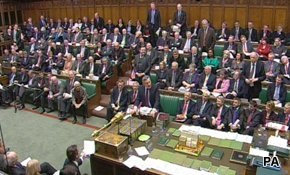Support for electoral reform to create a voting system more akin to proportional representation remains strong, despite some concerns surrounding what a hung parliament in next week’s election might mean for Britain, a survey for the Sun newspaper has found.
In the last week, the spat between parties over the ramifications of a hung parliament has intensified - David Cameron, for instance, has clearly stated that such a result would ‘stagnate’ and ‘paralyse’ the country’s economy. Yet, despite its increased propensity to create hung parliaments, the system of proportional representation, and its possible implementation into British politics, remains popular.
Nearly half (46%) of the public support a change to the system which would allow the composition of any given party’s parliamentary presence to more closely reflect the proportion of votes cast for that party MPs across the country. 37%, however, still favour the current system (first past the post) under which, in this country, the MP with the most votes in a particular constituency is elected to Parliament even if these votes do not represent an overall majority, and other votes in that constituency do not count towards forming the government.
A significant 17% claimed they did not know which system they would prefer, and given the impassioned case offered by parties on either side, there is little wonder why. While Cameron has been outspoken against such reform, Clegg has insisted that reform of the electoral system (to a particular type of proportional representation – the single transferrable vote is a pre-condition of forming a coalition government with anyone after May 6th, and is key to ‘renewal in this country’. For now, however, Mr Cameron has his way - we shall be voting in a first past the post system come May 6th.
But with strong public support and Nick Clegg (whom the press has dubbed ‘Kingmaker’ because of the chance that he may decide who would be PM in a post-hung parliament coalition) on side, it may not be too far-fetched to suggest that things could soon look very differently.










